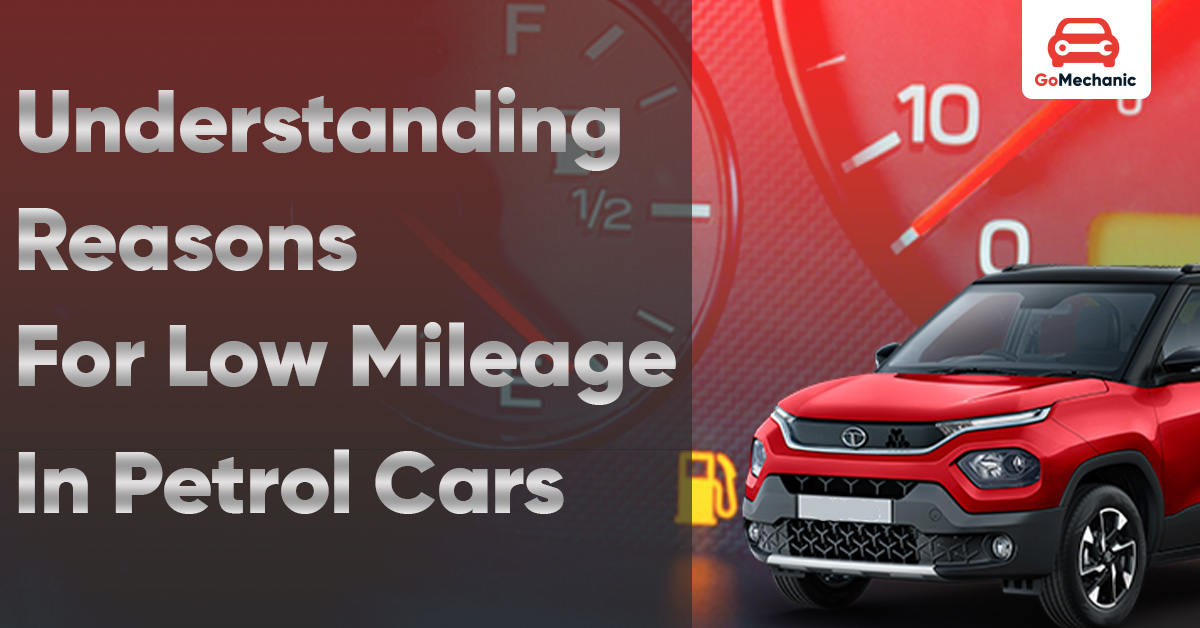
You might not know this, but your gas car uses a lot more fuel than expected. Yes, really. This worry is something that most car owners will experience at some point in their lives. With this blog, you’ll learn all about the causes of poor gas mileage and why your car may suddenly be running out of gas. Therefore, the rest of this article will be centered around practical solutions and tips every step of the way to restore your vehicle’s fuel consumption again.
What is mileage?
It means how far any car can travel per unit of fuel, measured in miles per gallon (mpg) or kilometers per liter (km/L). It tells us how efficiently the vehicle’s engine is working or its fuel efficiency. Mileage may be affected by the make and model of the vehicle, driving conditions and maintenance practices, as there may be consistently high mileage based on the driving style of a particular car.
Related: Best Mileage Cars in India 2025
Let’s clarify the difference between low mileage and high mileage.
| factor | high mileage | low mileage |
| fuel efficiency | Use less fuel to get farther | Consumes more fuel for the same distance |
| engine performance | Smooth and efficient operation | There may be engine issues causing inefficiency |
| driving habits | Continuous, smooth driving, usually on the highway | Aggressive driving, frequent short trips, or idling |
| vehicle maintenance | Regular maintenance keeps your engine efficient | Neglected maintenance leads to poor fuel usage |
| weight | light vehicle with minimum cargo capacity | Extra weight reduces fuel efficiency |
| fuel system | Clean system and premium fuel | A dirty or faulty fuel system will burn more fuel |
Must read: How to Calculate Car Mileage: 5 Steps You Can’t Mess Up
The reasons why gasoline vehicles have low mileage are as follows:
Driving Habits: The Culprit for Most Fuel Consumption
High fuel consumption may also be related to the way you drive. Have you ever asked, “Why is my car suddenly using so much gas?” Well, the truth is that your driving habits may explain why. Speeding, rapid acceleration, sudden braking, and short trips can all reduce your car’s fuel efficiency. Aggressive driving causes the engine to work harder and burn more gasoline. You’ll also notice reduced fuel efficiency if you also leave your car idle for long periods of time in traffic jams or at stoplights.
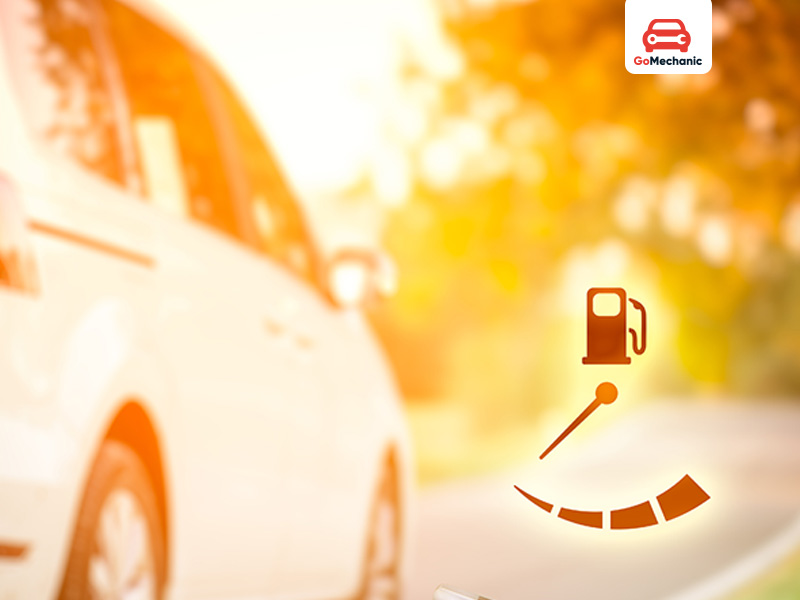
- Solution: Switch to smooth driving. Avoid heavy acceleration and braking. Instead, maintain a continuous pace. In fact, you can try utilizing cruise control to optimize fuel economy when driving on the highway
- Pro tip: Utilize apps that track your driving behavior, such as fuel economy apps, to help you track fuel-saving measures. This will help track your habits, which can in turn lead to areas of improvement.
Under-inflated tires: your silent fuel guzzler
Under-inflated tires are the most common cause of low mileage on gasoline vehicles. When tires are not inflated to the proper level, they create more rolling resistance, making it harder for the engine to move the car. Therefore, this correlation may lead to increased fuel consumption. Most drivers don’t care much about tire pressure, but it is closely related to the car using too much fuel. Therefore, check the condition of your tires regularly to avoid unnecessary waste of fuel.
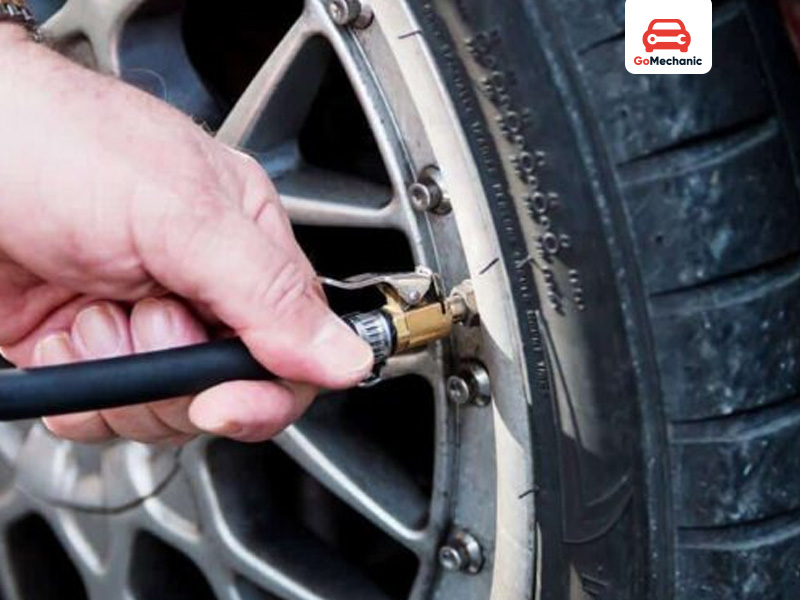
- Solution: Check recommended tire pressure levels regularly and perform maintenance. Make sure your tires are inflated to the proper level according to the manual or the sticker on the door jamb.
- Pro tip: Invest in a good digital tire pressure gauge and check your tires monthly before long trips to maximize your vehicle’s fuel economy.
Oxygen sensor malfunction: cause of fuel waste.
The oxygen sensor acts as a mixture of air and fuel in the engine. If the oxygen sensor fails, it will usually cause that engine to consume more fuel than other engines, enough to reduce fuel usage capabilities. Additionally, a faulty oxygen sensor can turn on the “check engine” light on the dashboard to indicate a fuel system problem.
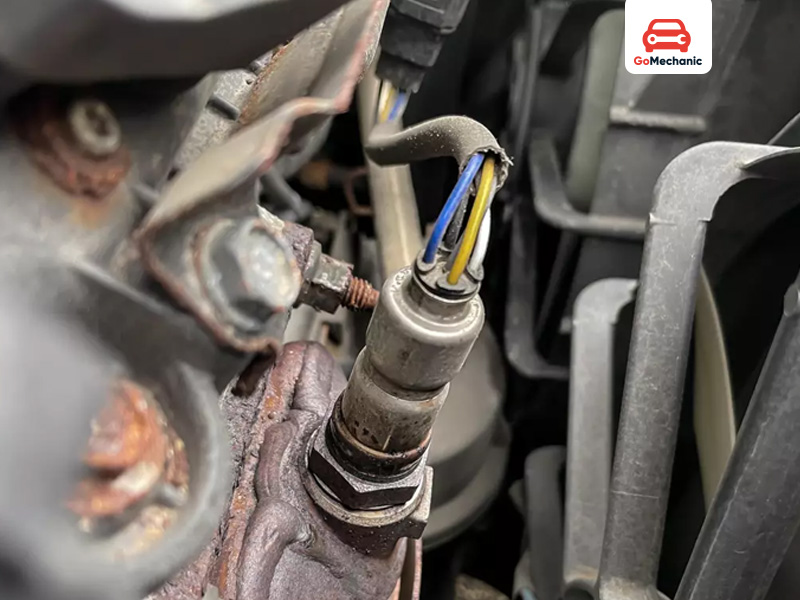
- Solution: Perform a performance check on the oxygen sensor and replace it mechanically if the sensor is not operating efficiently. A well-functioning oxygen sensor ensures optimal air-fuel ratio, thereby saving fuel.
- Pro tip: By regularly maintaining your vehicle and paying attention to warnings like the “check engine” light, you can identify and fix problems like this before they have a major impact on fuel efficiency.
Dirty Air Filter Clogged: Dead Time Lockup in Engine Performance
This is what causes reduced engine performance and fuel economy, it’s a clogged or dirty air filter, as this limits the amount of air that can be pulled into the engine while burning a lot of fuel. Neglecting the air filter for a long time may be one of the reasons for excessive fuel consumption in gasoline vehicles.
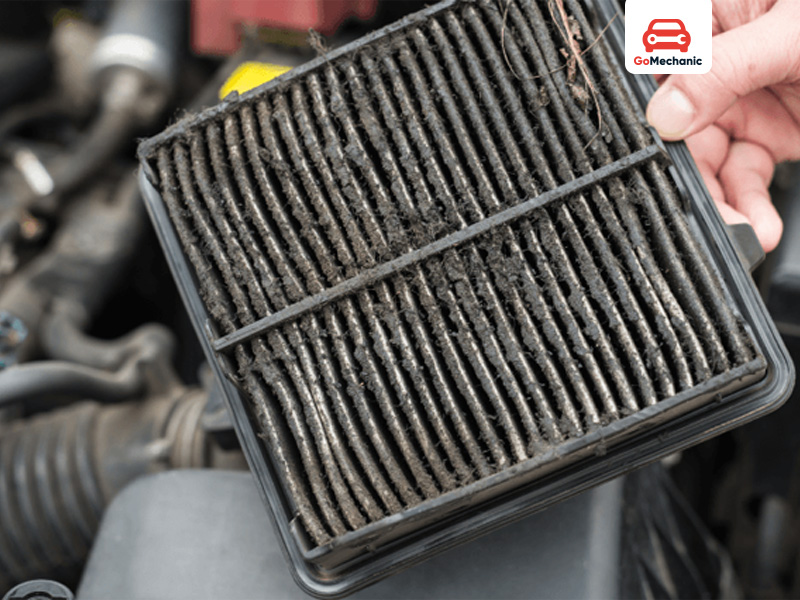
- Solution: Check and replace the air filter every 12,000-15,000 miles or as recommended by the manufacturer’s data in the owner’s manual.
- Pro tip: Check the condition of the air filter every time you change the oil and replace it if it looks dirty or clogged. This is a quick and cheap way to maintain fuel efficiency.
Engine Problems: Hidden Causes of Excessive Gas Consumption
Many different engine problems can cause your car to consume more fuel than it needs. Examples include faulty spark plugs, faulty fuel injectors, improper or unstable combustion, or misfires. If the engine doesn’t ignite properly or fuel is injected incorrectly, efficiency is reduced and fuel is wasted.
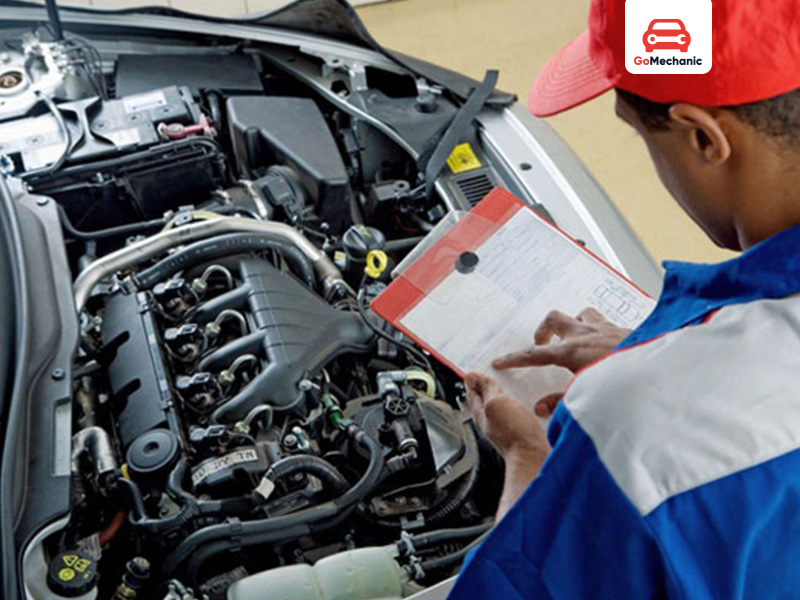
- Solution: Check the car for mechanical problems, especially if it has difficulty starting or running. Replacing the spark plugs will help ensure that the injectors are clean and working properly as this will make the engine more efficient.
- Pro tip: Regularly replace spark plugs and perform maintenance adjustments to keep your engine in good condition. A properly tuned engine can save fuel and keep your car running in good condition for the long haul.
Problem Areas in the Fuel System: Inefficient Fuel Delivery
Such faulty fuel systems can include faulty fuel pumps, leaking fuel injectors, etc. In these cases, disrupting fuel combustion may result in more fuel consumption than the car needs. Take a leaking injector, for example. They can waste fuel by delivering it to the engine incorrectly, causing the combustion process to be inefficient. Therefore, it becomes one of the reasons for the low mileage of gasoline vehicles.
- Solution: If you suspect a problem with your fuel system, it’s best to have it inspected by a qualified mechanic who can diagnose and then replace the defective part.
- Pro tip: Watch fuel usage over time. If you suddenly notice an increase in fuel usage, there must be something wrong with the fuel system. Early detection can avoid costly repairs later.
Weight and load: The greater the load, the higher the fuel consumption
All that extra weight has to be borne, and the result is that the engine has to work harder, consuming more fuel. Heavy objects in your truck or roof racks loaded with cargo can reduce your car’s fuel efficiency.
- Solution: Remove all unnecessary items from the car and avoid carrying excess weight. Use a roof box or trailer to transport heavy items on long trips instead of overloading your car.
- Pro tip: Empty your car regularly to avoid carrying unnecessary weight. This is especially important since you may not need the extra loading space very often.
Fuel Quality: The need for high quality fuel
Gasoline is important because it is one of the factors that affects fuel efficiency. Low-quality fuel may contain certain contaminated substances that can clog your fuel system and cause your car to use too much fuel. This results in poor performance and reduced fuel economy as well as high fuel consumption.
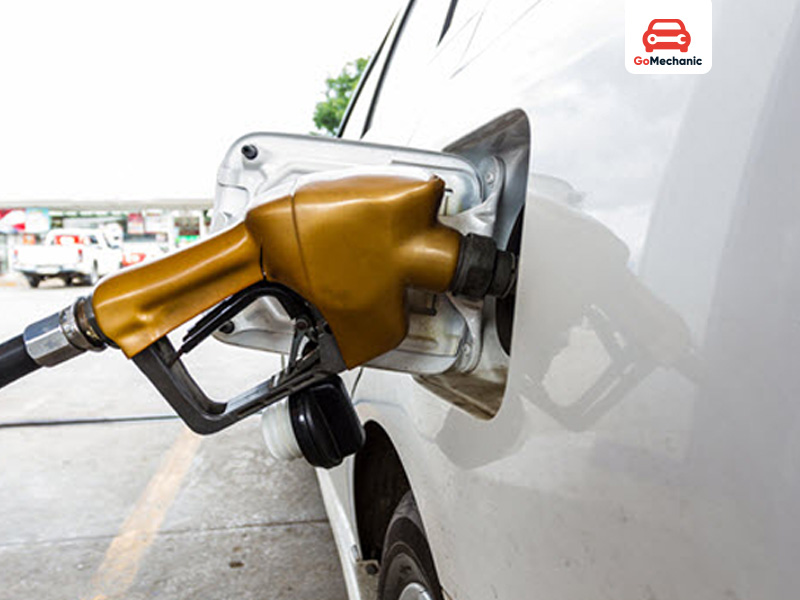
- Solution: Always try to fill up on premium petrol from a reputable petrol station. In some cars, especially those with high-performance engines, high-octane or premium fuel may provide additional performance.
- Pro tip: In some cases, occasional use of fuel additives may help clean fuel injectors and improve fuel economy. Check your manual to verify if this is beneficial for your model.
Effects of cold weather excursions on engine stress and higher fuel consumption
Cold weather means the engine requires more time and energy to reach ideal operating temperature; therefore, it consumes more fuel. Additionally, short journeys do not allow enough time for the engine to start warming up; therefore, all of these factors contribute to wasted fuel.

- Solution: Trying to combine these shorter strokes into one to allow the engine to warm up better often works. Otherwise, you may consider winter-grade fuel that is better for running at low temperatures in colder regions.
- Pro tip: Therefore, in winter, you need to let the car idle for a minute or two before driving. It will make the engine run smoother and more efficiently.
How to increase car mileage?
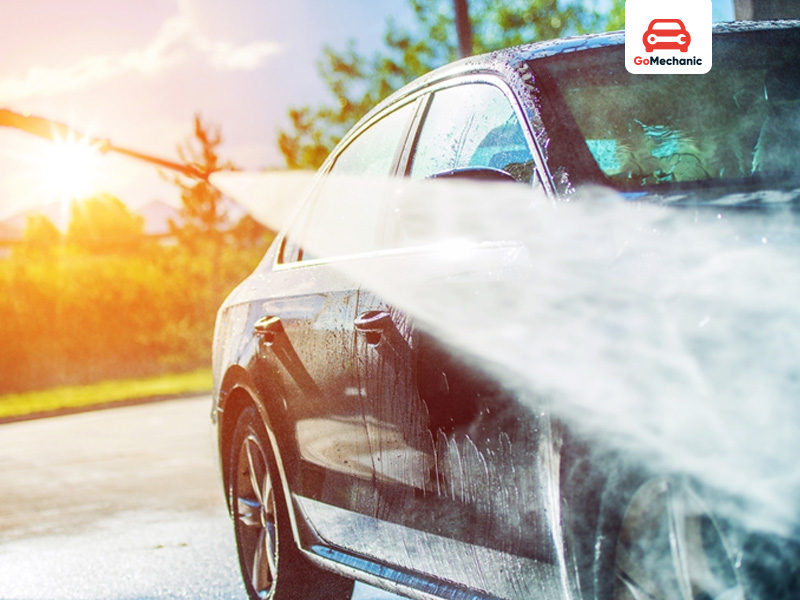
- Keep your car clean
With a cleaner car, there’s less drag, which improves fuel economy. Keeping the outside of your car free of dust and debris can reduce air resistance.
- Avoid excessive idling
Idling consumes fuel and the car cannot move forward. For situations where the stop is expected to last longer than 30 seconds, it is usually more fuel efficient to shut down the engine and restart it. Especially when you are at a long red light or waiting for someone.
- Use air conditioning wisely
Using air conditioning increases the load on the engine, thereby increasing fuel consumption. When the speed is below 40 km/h, use the air conditioner as little as possible; when the speed is above 40 km/h, consider rolling down the windows instead of using the air conditioner.
- drive at moderate speed
When you drive at high speeds, you encounter a lot of wind resistance because it increases the work done by the engine, which requires more fuel.
- Use a manual transmission (if possible)
Of course, a manual transmission gives you more control over your engine’s output or efficiency. In fact, with automatic cars, make sure to minimize “overdriving” by using higher gears for as long as possible.
- Maintain correct wheel alignment
Poor wheel alignment can cause your car to move to the left or right, increasing drag and fuel consumption. You’ll do intervals to get your wheels aligned. This will help you achieve a smoother drive and economical fuel consumption.
Also read: How to increase car mileage
in conclusion
There are many factors that go into answering the question: “Why did my car suddenly start using so much gas?” If you analyze these, you’re bound to uncover common problems that may lead to improved fuel efficiency and lower gas costs. Regular maintenance, improved driving habits, and paying attention to possible faulty sensors or under-inflated tires will go a long way toward maintaining fuel efficiency. Small changes can help optimize your car’s performance, give your gasoline vehicle more mileage, and reduce fuel costs.







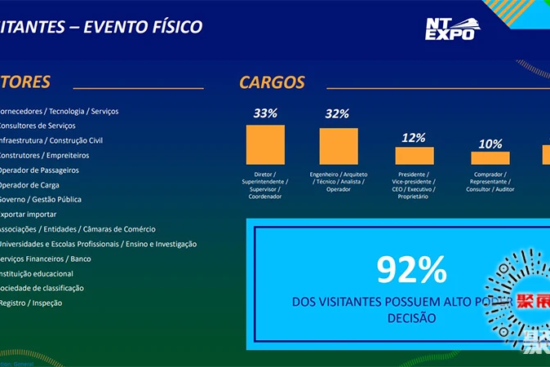



Leave a Reply Cancel reply
You must be logged in to post a comment.